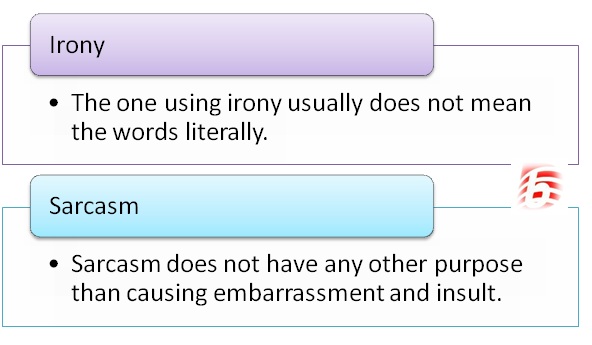Irony vs Sarcasm
Understanding the distinction between irony and sarcasm can be beneficial for anyone. Both irony and sarcasm are techniques employed in verbal or written communication, where speakers or writers express words without meaning them literally. Often, they mean the complete opposite of what they say or write. Both are utilized in our everyday lives.
Irony
Irony is a figure of speech, as defined in English Grammar. The person using it typically does not mean the words literally. Some dictionaries state that irony conveys the exact opposite of the word used. The types of irony include verbal, dramatic, and situational. For example, when someone is overdressed for an occasion, you might hear someone say, “Such a nice get-up, way over the top.”
Sarcasm
In contrast, sarcasm serves no purpose other than to cause embarrassment and insult. Bullies often speak sarcastically. Sarcastic words are used to offend the other party, typically directed at someone the speaker dislikes or hates. Sarcastic words are delivered in not-so-good tones, with the speaker usually sounding mean and mocking. Sarcasm is typically aimed at the person whom the speaker hates.
Key Takeaways
- Irony is gentle while sarcasm is offending and harsh.
- Irony means anything except for the literal meaning of the word, while sarcasm means exactly the opposite of the word.
- Irony can be used playfully and does not need to offend the “victim,” while sarcasm is used to attack the other person hastily.
